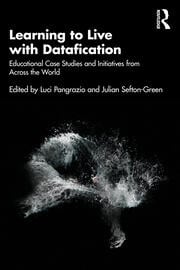I had the pleasure of co-supervising two PhDs from a collaboration between Utrecht University in the Netherlands and Deakin University in Melbourne, Australia. The aim of this project is to explore how learning is shaped through digital media, both in and beyond the classroom. Previous research has explored the potential of digital media for learning, but how digital media have changed the way we understand learning is rarely discussed. Examples of questions both projects investigated are: “How do young people learn in digital communities?”, “How does the structure of digital platforms shape learning processes?” and “How does the use of video games in the classroom changes perceptions of both learning and playing?”
Both candidates successfully recently defended their theses.
At Deakin, Chris Zomer’s thesis, Laugh, Focus, and Perform! A Critical Ethnography of Gamified Engagement investigated the role of gamification in reshaping understandings and performances of student engagement in a private girls’ school in Melbourne’s inner east. Gamification’s proponents claim it creates engagement through game elements such as points, rewards, and a leaderboard. However, engagement is a problematic term and historical notions of student engagement are not necessarily congruent with perceptions of engagement in user-interface designs and games on which gamification is based. The aim of this research is to analyse how these ‘technoeconomic’ and ‘gameful’ discourses inform representations, performances, and perceptions of engagement.
At Utrecht, Zowi Vermeire thesis Youth’s desire to learn: The pedagogies of platformised learning communities investigated alternative forms of learning that youth create on social media platforms as these question accepted ideas about what constitutes “good” learning She undertook an ethnography of six learning communities on YouTube, Twitch and TikTok acquiring an understanding of how youth shape their own learning online and in doing so how they resist and appropriate pedagogical opportunities and limitations that formal education, social media platforms, and online learning optical communities offer them. The aim of the study is to explain how youth shape their learning online in order to offer inspiration to educators and policymakers to move beyond dystopian perspectives on youth and social media towards reimaginations of educational practices.
A blog from both candidates about their work can be found here.

